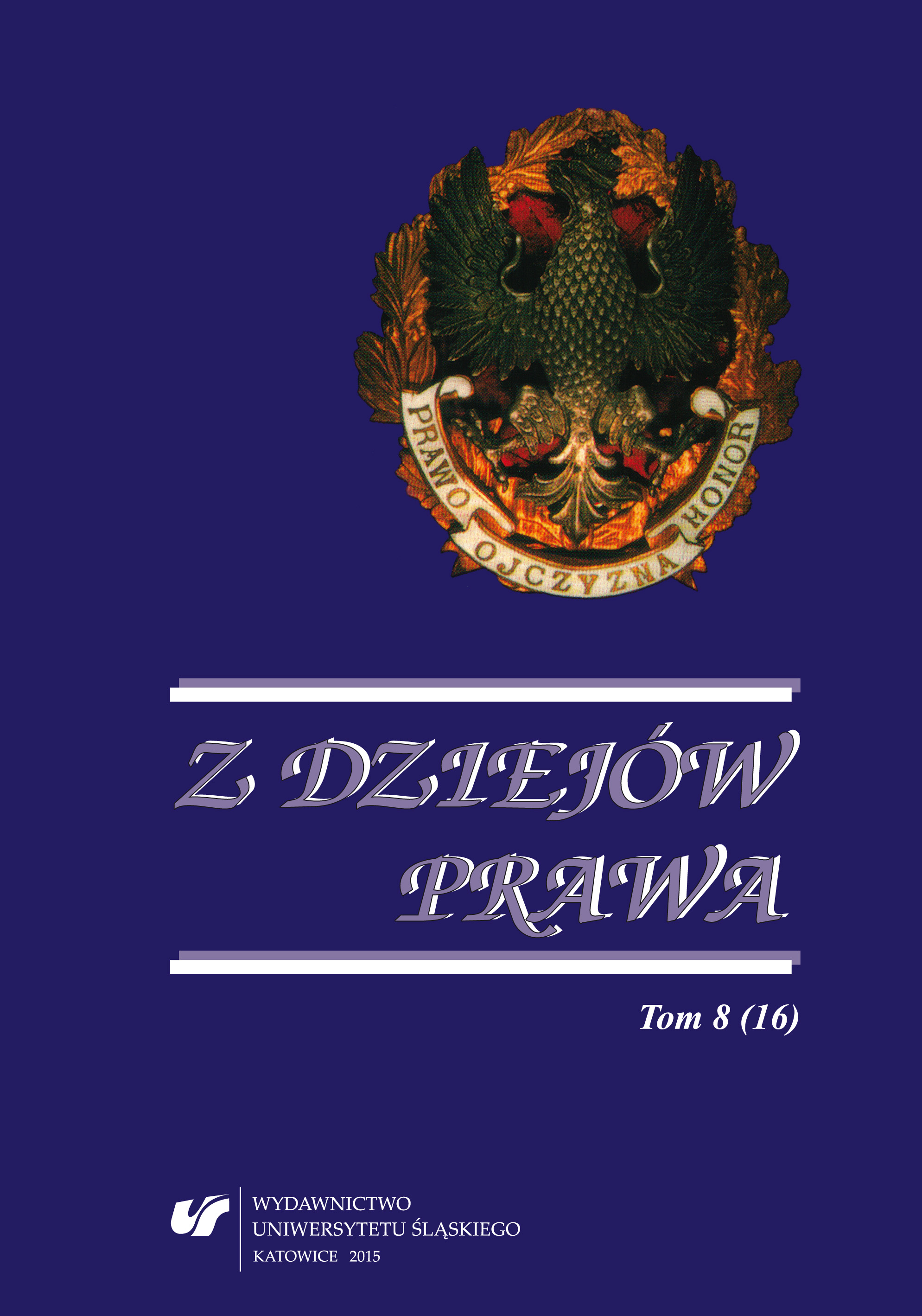Przestępstwo propagandy faszyzmu oraz poniżania, lżenia i wyszydzania ustroju państwa (art. 29 tzw. Małego kodeksu karnego z 13 czerwca 1946 r.) w świetle orzecznictwa Sądu Okręgowego w Krakowie w latach 1946—1950
The Crime of Fascist Propaganda as well as Degrading, Insulting, and Deriding the State System (Art. 29 of the Little Penal Code of June 13th, 1946) in Light of the Case Law of the District Court in Cracow in the Years 1946—1950
Author(s): Karol SiemaszkoSubject(s): History of Law
Published by: Wydawnictwo Uniwersytetu Śląskiego
Summary/Abstract: The decree on particularly dangerous criminal activity in the time of state reconstruction dating June 13th, 1946, i.e. the so-called Little Penal Code, should be considered one of the communist legal acts designed to subdue the general populace to conform to the new regime. The article constitutes an analysis of the case law of the District Court in Cracow regarding the crime of fascist propaganda as well as degrading, insulting, and deriding the state system. The crime, described in art. 29 of the Little Penal Code, can be characterised as a political crime. It would seem, then, that the main reason for introducing this sort of criminal norm to the decree on particularly dangerous criminal activity in the time of state reconstruction was the desire to force the society to silently accept the new regime. Both the severity of the rulings as well as the relatively common instances of temporary arrest in the cases of people suspected of the aforementioned crime would suggest that the crime was regarded at the time as a serious offence characterised by a high degree of danger to society. It seems, then, that the analysed criminal offence constituted a sign of the desire to control all aspects of social life, characteristic of totalitarian systems.
Journal: Z Dziejów Prawa
- Issue Year: 16/2015
- Issue No: 8
- Page Range: 67-96
- Page Count: 30
- Language: Polish

